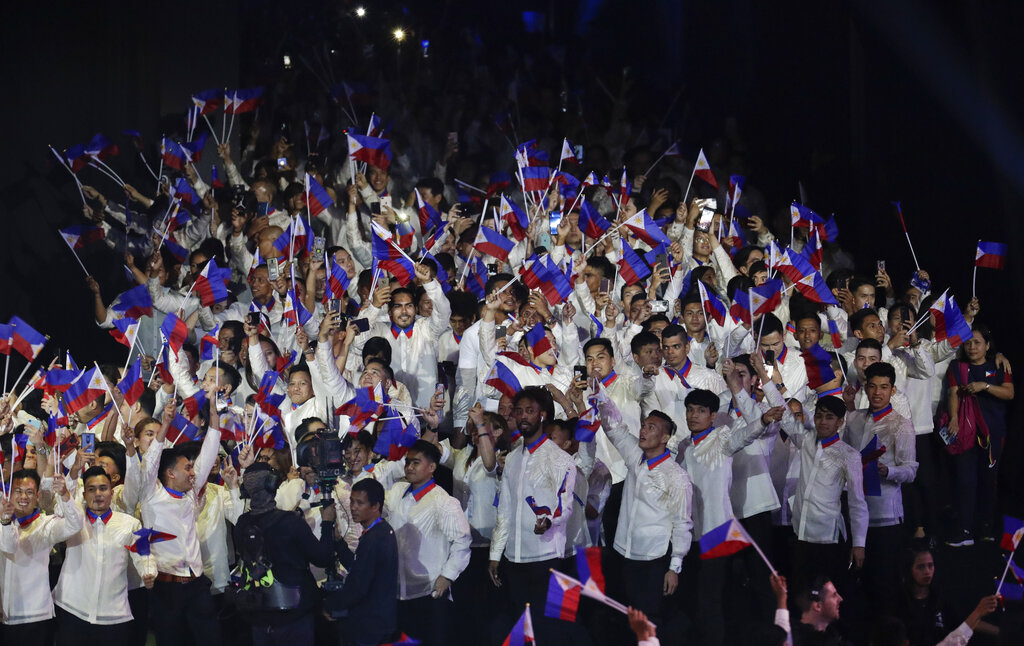
FILE – Philippine delegates wave flags during the opening ceremony of the 30th South East Asian Games at the Philippine Arena, Bulacan province, northern Philippines on Saturday, Nov. 30, 2019. (AP Photo/Aaron Favila)
MANILA, Philippines — The country’s athletes for this year’s Southeast Asian Games remain restricted to virtual training with no clearance yet to do face-to-face workouts.
The Philippine Sports Commission (PSC), as per national training director Mark Velasco, is still in the process of obtaining the go-signal from the Inter-Agency Task Force to finally grant the athletes permission to resume their usual training.
“We need the IATF clearance for that. (PSC) Commissioner Ramon Fernandez (SEA Games chef de mission) is working on that,” Velasco said during Tuesday’s Philippine Sportswriters Association (PSA) Forum.
Velasco said expects a maximum of 60 persons to be in the Calamba bubble, including athletes and coaches from boxing, karatedo and taekwondo.
Most of the athletes are preparing for Olympic qualifiers that will run until June.
Filipino athletes preparing for the Tokyo Olympics have already begun their buildup in a bubble at Inspire Sports Academy in Calamba, Laguna.
Only those who are either qualified or in contention for Olympic slots for the Tokyo Games are allowed to enter the bubble.
Karate Pilipinas, Inc. president Richard Lim, who also graced the forum, said health is still the top priority amid the threat of a new and deadlier coronavirus strain.
“We have to prioritize the safety of everybody. I think everybody (SEA Games rivals) is in the same situation. Health is our primary concern. November may still be far but for an athlete preparing for the SEA Games that’s near,” said Lim.
The Philippines will defend its overall SEA Games crown in Hanoi, Vietnam in November.
But the task is expected to be doubly hard due to the athletes’ limitations in training and lack of overseas exposure.
“That’s why we are planning the best timetable for them. With no foreign exposure we need longer training cycles,” said Velasco.